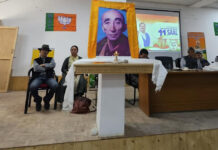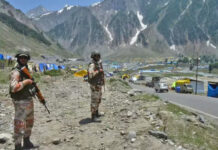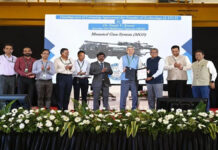The recent decision to grant 33% reservation for women in the Jammu and Kashmir Legislative Assembly marks a significant step towards greater representation and political participation for women in the state. This long-awaited reform, echoing the national policy of reserving one-third of seats for women in legislatures, promises to inject a much-needed gender balance into J&K’s political landscape. For decades, women in J&K have faced various societal and structural barriers that limited their access to political positions. Under-representation in the legislature has meant their voices and concerns often remained unheard and unaddressed. This historical imbalance has hindered the state’s progress towards full and inclusive democracy. The 33% reservation policy, therefore, is a powerful corrective measure. It dismantles the glass ceiling that has held women back, opening doors for them to contribute more directly to shaping J&K’s future. This increased representation will bring diverse perspectives to the table, enriching policy discussions and ensuring that issues that matter to women, such as education, healthcare, and gender-based violence, receive the attention they deserve. However, reservation alone is not a panacea. To ensure the success of this policy, robust support mechanisms are crucial. Political parties need to actively encourage and mentor women candidates, providing them with necessary training and resources to navigate the political landscape. Civil society organizations and women’s groups must also play a vital role in mobilizing women voters and creating awareness about the importance of women’s participation in politics. Furthermore, the existing patriarchal structures and societal biases must be actively challenged. Breaking down gender stereotypes and creating a more conducive environment for women to engage in politics is essential for their long-term success. The journey towards gender equality in J&K’s political sphere will not be easy. Challenges and resistance remain, necessitating sustained commitment and collective effort. However, the 33% reservation policy represents a crucial first step. It signifies a recognition of the vital role women can play in building a more just and equitable society. By harnessing the talent, perspectives, and leadership potential of women, J&K can write a new chapter in its history, one where gender equality is not just an aspiration, but a lived reality. Let this decision be a catalyst for a broader transformation, not just within the legislative halls but across all aspects of J&K’s social and political life. Let us work together to ensure that the voices of women are not just heard, but amplified, and that their rightful place at the decision-making table is secured. The future of J&K, a future of inclusive democracy and shared prosperity, hinges on it.

Dogra Herald is the media of J & K, breaking language and geographical barriers, connecting J & K to the rest of India.
0191 245 4946
info@dograherald.com
Latest articles
Modi govt ensured improved ease of living for everybody: Sat Sharma
DOGRA HERALD BUREAUJAMMU, Jan 3Narendra Modi government, through its strong policies and decision-making capacity, has ensured improved...
Covid positivity rate down to 9.54 percent: Health Ministry
iamjkstarr - 0
NEW DELHI: The daily COVID-19 positivity rate has reduced and now stands at 9.54 per cent, while the single-day recoveries continue to...
LG Manoj Sinha greets people on Jumat-ul-Vida, appeals to follow SOPs
iamjkstarr - 0
SRINAGAR: Jammu and Kashmir Union Territory (UT) Lt Governor Manoj Sinha has extended his warm greetings to people on the occasion of...




























